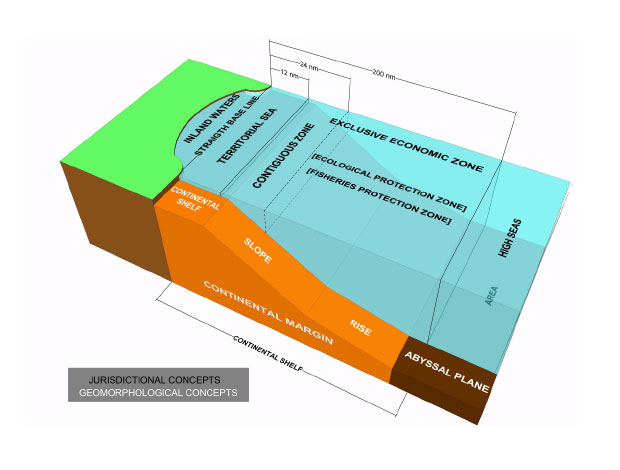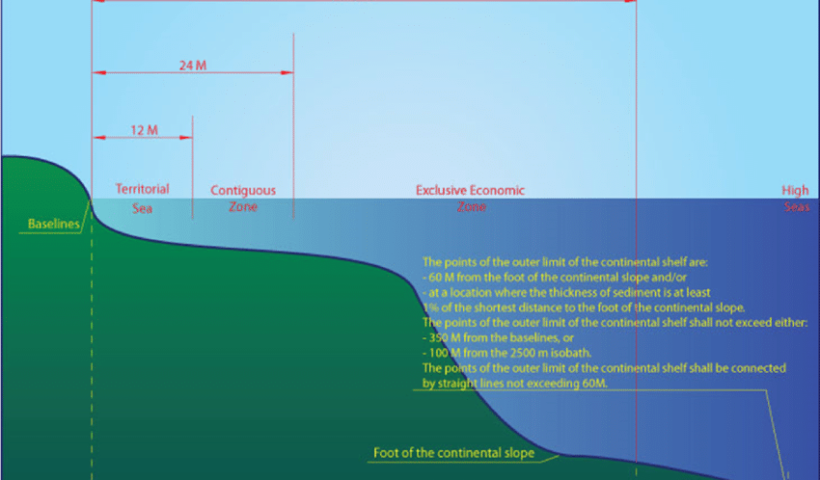Coastal states can claim five key maritime zones. Proceeding seawards from the coast they are internal waters, territorial seas, the contiguous zone, the exclusive economic zone (or, in some cases, an exclusive fishing zone) and the continental shelf. Archipelagic states may also claim archipelagic waters within their archipelagic baselines. Beyond these national zones of jurisdiction lie the international maritime zones of the high seas and the Area.
The rights of the coastal state and aliens vary in these maritime zones, and do so both spatially and functionally. Thus, the coastal state has more rights closer to shore, for example in internal waters and the territorial sea. Aliens retain considerable rights within a coastal state’s claimed maritime zones concerned with communication issues such as navigation, overflight and the laying of submarine cables and pipelines. The coastal state, in contrast, boasts significant resource related rights, particularly concerning fishing and mineral extraction from the seabed.
Tag: What are maritime zones?
MARITIME ZONE AND JURISDICTION
MARITIME ZONE AND JURISDICTION, contiguous zone, continental shelf, Exclusive Economic Zone (EEZ), High Seas and Deep Ocean Floor, internal waters, law of the sea, Maritime Claims, maritime zone, Maritime Zones and How They Are Determined, River Mouths, territorial sea
View More MARITIME ZONE AND JURISDICTION

